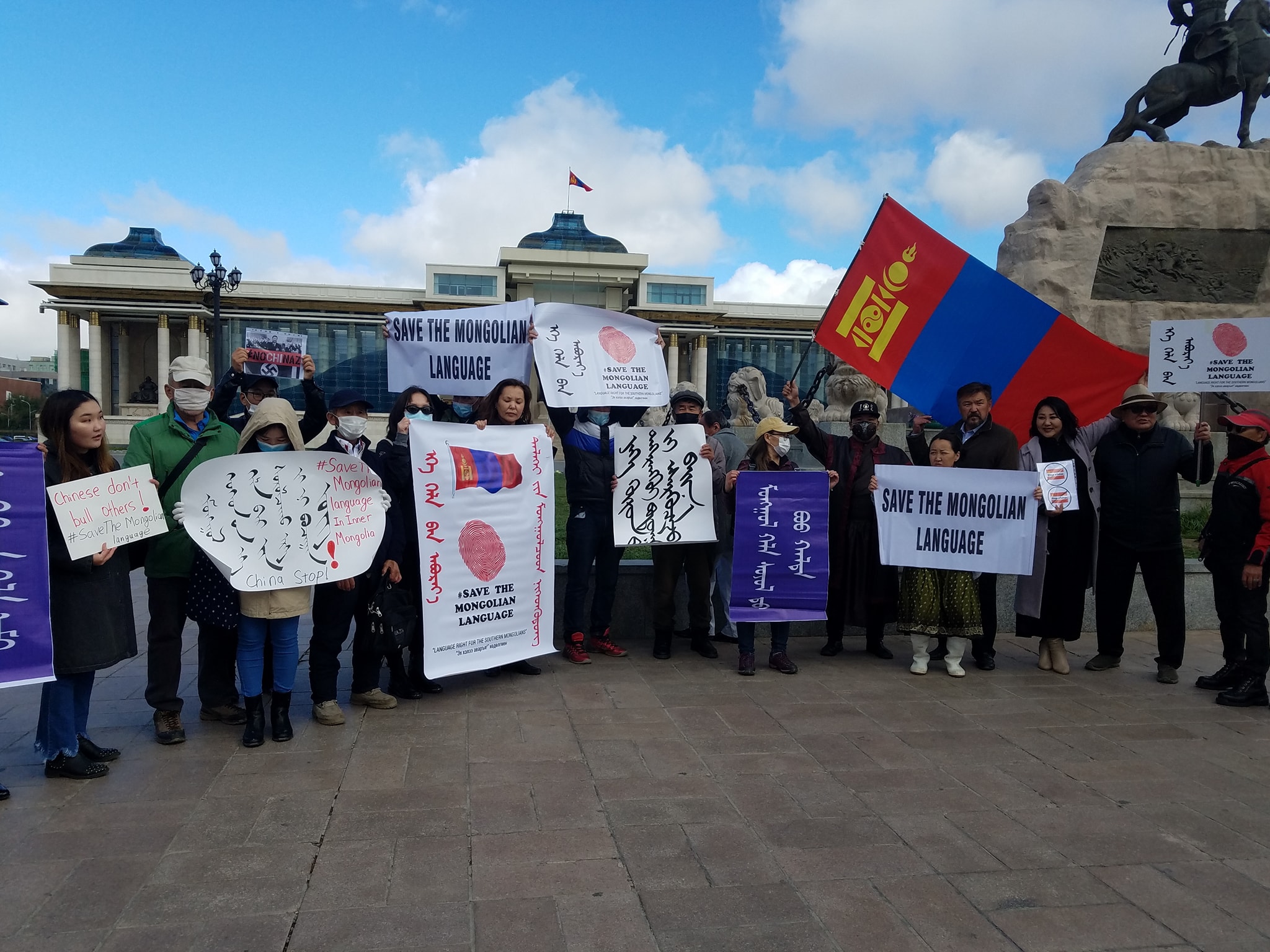How Cultural Unification Policies in China are Leaving Ethnic Mongolians Voiceless

Since this post was originally published, protest remnants in Inner Mongolia have been purged by the Chinese government, while similar movements in Mongolia have lost steam. Although the CCP’s restrictive language policies in the IMAR have been implemented as intended, the demonstrations revitalized interest within Mongolia for the country’s traditional script. Moreover, Mongolia’s general public has shown new-found energy for a previously approved five-year plan to restore the script’s use in everyday life, with President Battulga even teaching virtual writing lessons. With the dust settling and the large-scale movements coming up short, the protests nevertheless broke down assumptions Mongolians held that those in Inner Mongolia had lost their ethnic roots; a realization that seems to have instilled a resurgent sense of nationalistic purpose to preserve the Mongolian identity.
As the Chinese Communist Party (CCP) intensifies its assault on political freedoms in territories such as Hong Kong, Tibet and Xinjiang, China’s Inner Mongolia Autonomous Region (IMAR) finds itself as Beijing’s newest target. With the imposition of new classroom language policies meant to replace the traditional Mongolian language with Mandarin, the CCP is asserting greater dominance in the region under the guise of “cultural unification.” As Mongolians outside of the IMAR come together in support of their neighbors and ethnic kin, the international community must now do the same to defend the political and cultural rights of minority groups.
In late summer, the Inner Mongolia Department of Education announced that three grade school subjects – Language and Literature, Morality and Law (Politics) and History – would now be taught in Mandarin rather than Mongolian. The move suggests a phasing out of the Mongolian language, in line with the CCP’s assimilation-oriented ethnic policies already seen in the Tibet Autonomous Region (TAR) and the Xinjiang Uighur Autonomous Region (XUAR).
With opposition movements lacking any political recourse under a single party state, the language policy has forced ethnic Mongolians to take action in whatever form available: peaceful protests, widespread home-schooling, teacher strikes, public petitions aimed at the White House and the United Nations, and even stashing Mongolian textbooks for safekeeping. Thus far, nine deaths have been reported as ethnic Mongolians suffer under an aggressive assimilationist agenda that undermines one of the last remaining characteristics of their shared identity. Reminiscent of recent crackdowns in Tibet, Xinjiang and Hong Kong, peaceful protests in the IMAR have already been all but suppressed by Beijing’s sweeping tactics of intimidation and targeted imprisonment.
Within days of the first protests, the Chinese government effectively converted the region into a police state, shutting down the IMAR’s popular Mongolian social media app “Bainuu,” suspending uncooperative teachers, threatening parents’ employment if they refuse to send their children to school, and arresting thousands on charges of “forwarding false and harmful information” and “rumormongering.” The very act of demanding one’s right to individual identity has made ethnic Mongolians an enemy of their own government and at risk of losing their jobs, livelihoods, remaining freedoms and even lives.
On the other side of the Chinese-Mongolian border, Mongolian citizens have leveraged social media to stand in solidarity with their neighbors, even launching a grassroots civic movement known as “#SavetheMongolianLanguage.” Prominent Mongolians have also spoken out in support of the protests, including former Mongolian president Ts. Elbegdorj. In a now viral video, the former president offers his support of the movement, saying, “The right to learn and use one’s mother tongue is an inalienable right for all.” While no democracy is perfect, Mongolia’s system protects basic freedoms and the expansion of individual rights – standing in stark contrast to the policies enforced by Beijing.
The ability to protest publicly, to express dissent, to speak against the government without fear of retribution, these are cornerstones that separate democracy from authoritarianism. Beijing’s most recent salvo against ethnic Mongolians’ political freedoms in the IMAR threatens the survival of minority voices in the region as it pursues cultural and political homogeneity. As the CCP steps up its assault on freedom within its borders, democracies must use their influence in support of marginalized communities such as ethnic Mongolians in the IMAR, and condemn all efforts that promote the erasure of cultural minorities.
Top